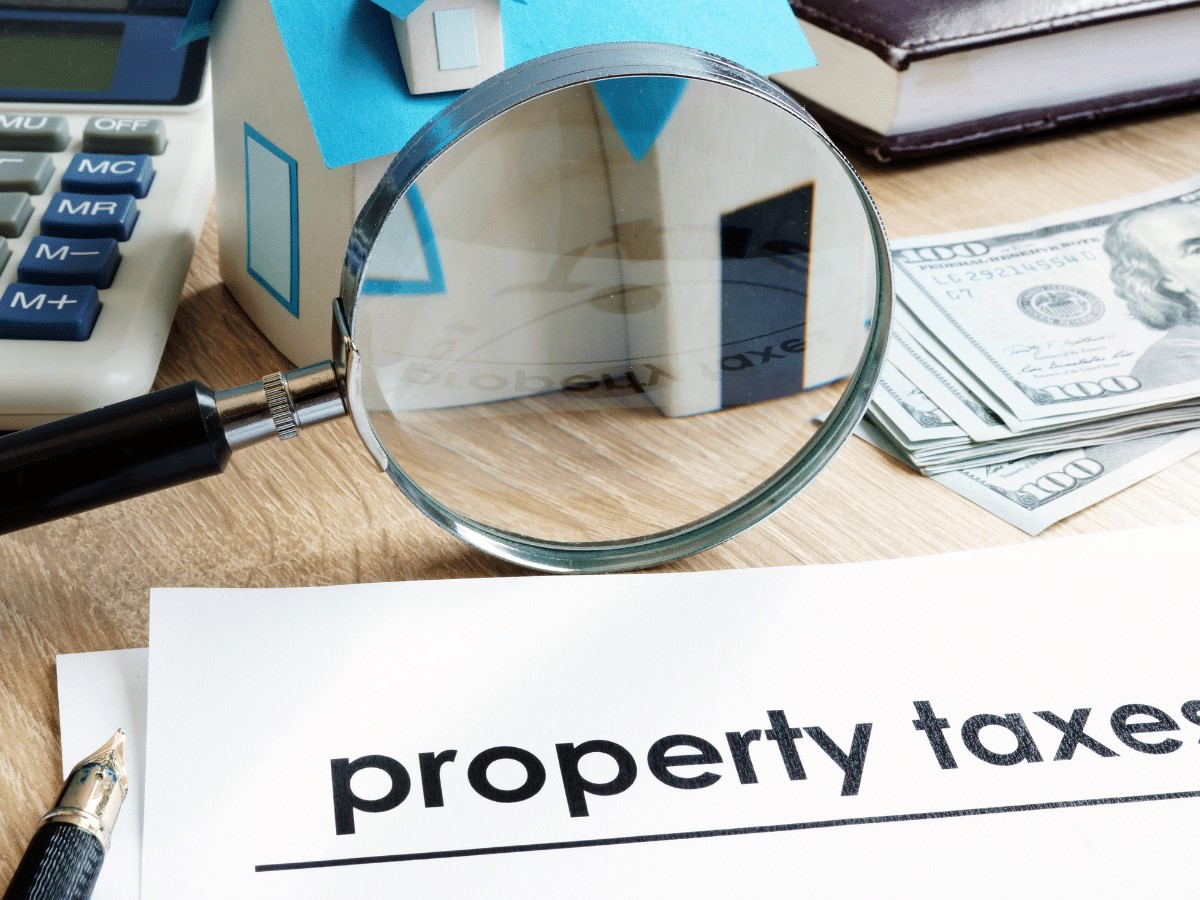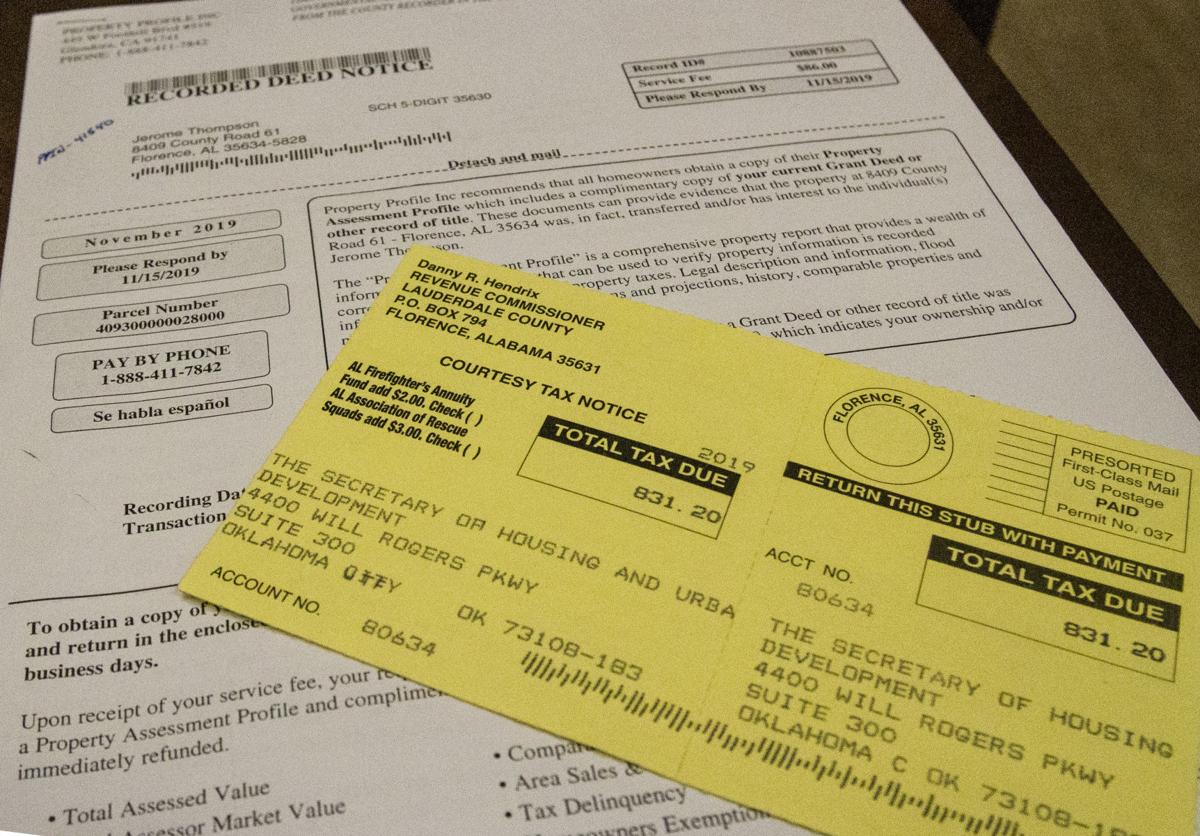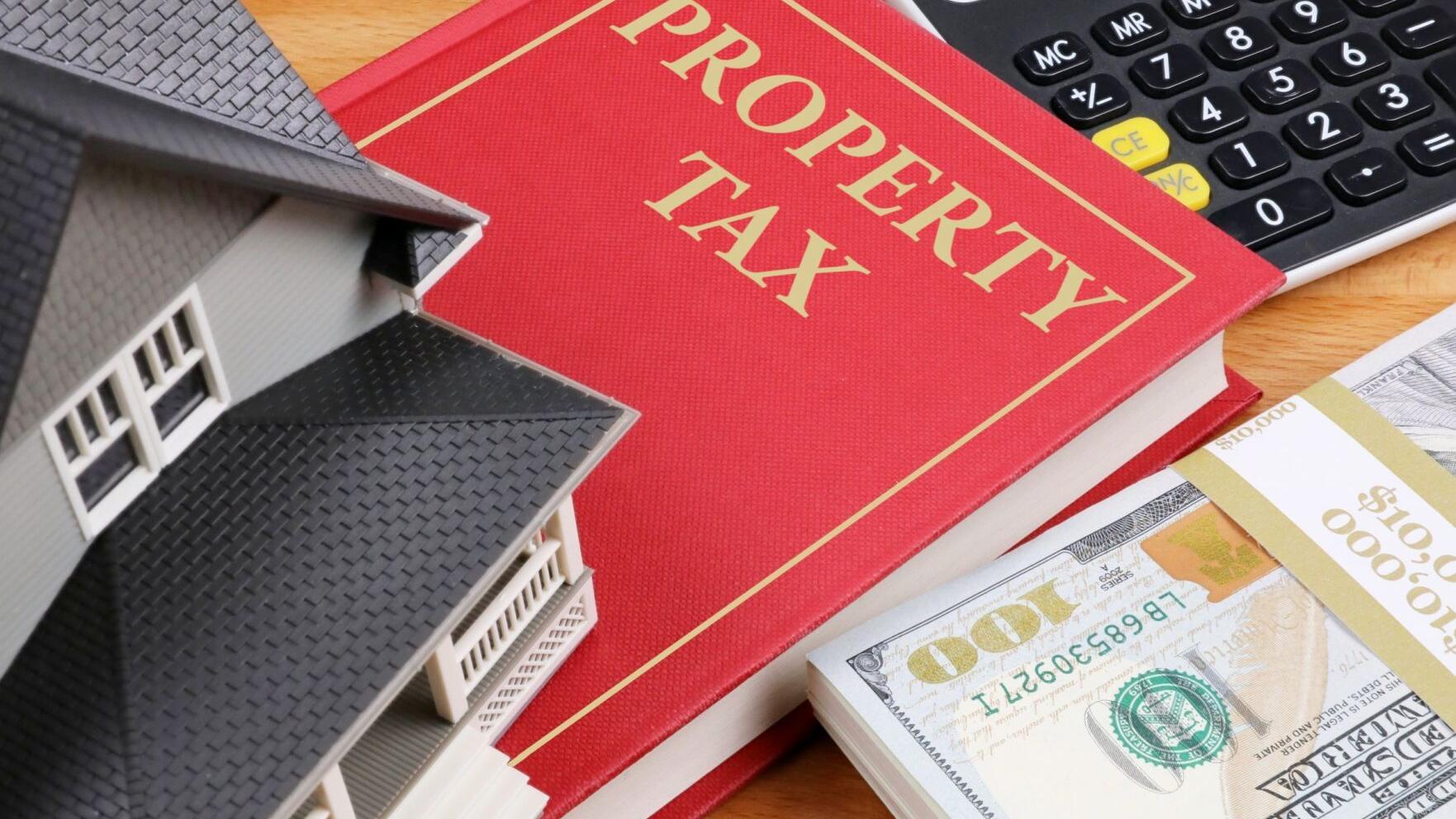Home>Home Maintenance>What Does Property Assessment Mean


Home Maintenance
What Does Property Assessment Mean
Modified: March 6, 2024
Discover what property assessment means and how it relates to home-maintenance. Gain insights to maximize your investment and ensure property value.
(Many of the links in this article redirect to a specific reviewed product. Your purchase of these products through affiliate links helps to generate commission for Storables.com, at no extra cost. Learn more)
Introduction
Welcome to the world of property assessment! Have you ever wondered how the value of your home is determined? How do local authorities calculate the taxes you owe each year? The answer lies in property assessment.
Property assessment is a fundamental aspect of home ownership, yet many homeowners are unfamiliar with the concept. In this article, we will explore the ins and outs of property assessment, its purpose, the assessment process, and its implications on your taxes.
Whether you are a homeowner, a prospective buyer, or someone simply interested in understanding how property values are determined, this article will provide you with a comprehensive overview of property assessment.
So, let’s dive right in and discover what property assessment truly means!
Key Takeaways:
- Property assessment determines how much homeowners pay in taxes based on their property’s value, ensuring fair contributions for public services and budget planning.
- Property assessment appeals process allows homeowners to challenge unfair assessments by presenting evidence and seeking resolution through a structured review.
Definition of Property Assessment
Property assessment refers to the process of evaluating the value of a property for taxation purposes. It is conducted by local government authorities, such as municipalities or counties, to determine the fair market value of a property.
The goal of property assessment is to establish an accurate estimate of a property’s worth, ensuring that property taxes are levied fairly and equitably among homeowners in a given jurisdiction.
Property assessment takes into account various factors, including the physical characteristics of the property, such as its size, location, condition, and amenities. Additionally, it considers market trends and sales data of comparable properties in the area.
The assessed value of a property is the value assigned to it by the assessing authority, which is typically a percentage of the property’s market value. This value is then used as the basis for calculating property taxes.
A property assessment is not a fixed value for the entire duration of ownership. It is subject to periodic reassessment to ensure the assessed value aligns with the current market conditions.
It is crucial to note that property assessment and property appraisal are different concepts. While assessment determines the value for taxation purposes, appraisal is conducted by a licensed appraiser to determine the market value of a property for buying, selling, or financing purposes.
Now that we understand the definition of property assessment, let us delve into the purpose behind this process.
Purpose of Property Assessment
The primary purpose of property assessment is to ensure that property taxes are allocated fairly and accurately among homeowners in a particular jurisdiction. By determining the assessed value of each property, local authorities can distribute the tax burden equitably based on the value of the property.
Here are some key purposes of property assessment:
- Taxation: The main purpose of property assessment is to calculate property taxes. Assessing authorities use the assessed value of a property and the applicable tax rate to determine the amount of tax owed by the property owner.
- Funding for Public Services: Property taxes play a vital role in funding public services such as schools, public safety, road maintenance, and parks. Property assessment ensures that homeowners contribute their fair share based on the value of their properties.
- Equitable Distribution: Property assessment aims to distribute the tax burden equitably among property owners. By evaluating the value of each property, authorities strive to ensure that individuals with similar properties and similar market values pay relatively equal amounts in taxes.
- Budget Planning: Property assessments provide local governments with valuable information to plan their budgets. Assessments help authorities estimate the revenue they will receive from property taxes and allocate resources accordingly.
- Market Monitoring: Property assessments allow local authorities to monitor market trends and changes in property values. By regularly reassessing properties, they can adjust tax rates and ensure that assessments accurately reflect the current market conditions.
Overall, the purpose of property assessment is to create a fair and transparent system for determining property taxes and ensuring that homeowners contribute their appropriate share of funding for public services. It enables the effective management of local budgets and facilitates the equitable distribution of the tax burden.
Now that we understand the purpose of property assessment, let’s explore how the assessment process is conducted.
How Property Assessment is Conducted
The property assessment process involves several steps and considerations to determine the value of a property accurately. While the exact methods can vary between jurisdictions, here is a general overview of how property assessment is conducted:
- Data Collection: Assessing authorities collect relevant data about each property within their jurisdiction. This includes information about the property’s size, location, age, construction, and other physical characteristics. They also gather data on recent sales of comparable properties to determine market trends.
- Property Inspections: Inspectors may visit properties to gather firsthand information and verify the accuracy of data collected. They may assess the condition of the property, note any improvements or changes, and take photographs for documentation purposes.
- Analysis and Valuation: Assessors analyze property data, considering both physical characteristics and market trends. They apply valuation models and methodologies to estimate the property’s market value. These models may incorporate factors such as recent sales prices of similar properties, rental incomes, and cost approaches.
- Notification of Assessment: Once the assessment is complete, property owners are typically notified of the assessed value of their property. The notification may include information on how to appeal the assessment if they believe it is inaccurate or unfair.
- Reassessment: Property assessments are often conducted periodically to account for changes in market conditions. This reassessment ensures that property values remain up-to-date, reflecting the current real estate market.
It is important to note that the specific assessment process may vary depending on the jurisdiction. Some areas may use automated assessment systems, while others rely on manual inspections and evaluations by trained assessors.
Furthermore, some jurisdictions consider additional factors such as zoning regulations, environmental factors, and proximity to amenities or infrastructure when assessing a property’s value.
By understanding how property assessment is conducted, homeowners can gain insight into the basis of their assessed value and have a clearer understanding of their property taxes. Now, let’s explore the factors that are taken into consideration during the property assessment process.
Factors Considered in Property Assessment
Property assessment involves considering various factors that affect the value of a property. These factors help assessing authorities determine an accurate assessed value. While the specific factors can vary depending on the jurisdiction, here are some common considerations:
- Location: The location of a property is a crucial factor in its assessment. Properties in desirable or high-demand areas, such as those near schools, parks, or with scenic views, generally have higher values compared to those in less favorable locations.
- Size and Physical Characteristics: The size of a property, including the lot size and square footage of the buildings, is an important consideration. Assessors also take into account the age, condition, and construction quality of the property.
- Comparable Sales: Assessing authorities review recent sales data of comparable properties in the area. They consider properties that are similar in terms of size, age, location, and physical characteristics to determine the market value of the property being assessed.
- Property Improvements: Any improvements or additions made to the property, such as renovations, expansions, or the addition of amenities, can impact the assessed value. Assessors typically consider the cost and value of these improvements in their calculations.
- Market Trends: Assessors monitor market trends and changes in property values to ensure assessments reflect the current market conditions. They analyze data on property sales and fluctuations in the local real estate market to make adjustments as necessary.
- Income Potential: For properties that generate income, such as rental properties or commercial buildings, the potential income generated can be a factor in assessment. Assessors consider factors such as rental rates, occupancy rates, and operating expenses to estimate the income potential and value of the property.
It’s important to note that while these factors are commonly considered, the weight assigned to each factor may vary depending on the jurisdiction and the property type.
By taking into account these various factors, assessors aim to determine a fair and accurate assessed value for each property. This ensures that property taxes are allocated based on the property’s characteristics and its market value.
Now that we have a better understanding of the factors considered in property assessment, let’s explore why property assessment is important.
Importance of Property Assessment
Property assessment serves several crucial purposes and holds significant importance for homeowners, local governments, and the overall community. Here are some key reasons why property assessment is important:
- Equitable Taxation: Property assessment ensures that property taxes are distributed fairly and equitably among homeowners. By assessing the value of each property, local authorities can calculate taxes based on the property’s worth, ensuring that individuals with higher-valued properties pay their fair share.
- Funding for Public Services: Property taxes provide essential funding for public services such as education, infrastructure maintenance, public safety, and recreational facilities. Accurate property assessment ensures that homeowners contribute their appropriate share towards the maintenance and improvement of their community.
- Transparent System: Property assessment creates a transparent system for determining property values and the subsequent tax obligations. Assessments are based on objective criteria such as property characteristics and market data, ensuring a consistent and transparent process for all property owners.
- Market Stability: Property assessments help maintain market stability by reflecting current real estate values. Regular reassessment allows local authorities to monitor and adjust property values to keep pace with market conditions. This helps prevent significant imbalances between assessed values and actual market values.
- Financial Planning: Accurate property assessments provide local governments with valuable information for financial planning. They can estimate the revenue generated from property taxes, allocate resources, and plan for future infrastructure projects, public services, and community development.
- Supports Real Estate Market: Property assessments assist buyers, sellers, and real estate professionals in making informed decisions. Assessments provide a reliable basis for comparing property values and determining fair market prices during transactions.
- Stimulates Economic Development: Sound and consistent property assessments foster confidence and trust in the real estate market. This can attract investment, stimulate economic development, and contribute to the overall growth and prosperity of the community.
Overall, property assessment plays a vital role in ensuring fair taxation, funding public services, maintaining market stability, and supporting economic growth. It provides a transparent and reliable system for determining property values and tax obligations, benefiting homeowners, local governments, and the community as a whole.
Now that we understand the importance of property assessment, let’s distinguish it from property appraisal and explore the differences between these two concepts.
Property assessment is the process of determining the value of a property for tax purposes. It takes into account factors like location, size, and condition of the property.
Differences Between Property Assessment and Property Appraisal
While property assessment and property appraisal both involve evaluating the value of a property, they serve different purposes and are conducted by different entities. Here are the key differences between property assessment and property appraisal:
- Purpose: The primary purpose of property assessment is to determine the value of a property for taxation purposes. It is conducted by local government authorities to calculate property taxes accurately and equitably. On the other hand, property appraisal is undertaken to determine the market value of a property for buying, selling, or financing purposes.
- Entity Conducting the Assessment: Property assessment is conducted by local government assessing authorities, such as municipalities or counties. These authorities assess properties within their jurisdiction and are responsible for determining the assessed value and calculating property taxes. Property appraisal, on the other hand, is performed by licensed appraisers who are independent professionals with expertise in determining the market value of a property.
- Methodology: Property assessments typically follow standardized methodologies established by assessing authorities. Assessors consider various factors such as the property’s size, location, condition, and market trends to calculate the assessed value. In contrast, property appraisals often involve a more detailed and comprehensive analysis. Appraisers typically conduct on-site inspections, review comparable property sales, and employ appraisal techniques to determine the fair market value of a property.
- Legal Requirement: Property assessment is usually a legal requirement imposed by local governments. Homeowners are obligated to pay property taxes based on the assessed value determined by the assessing authority. Property appraisal, on the other hand, is not a legal requirement but is often conducted voluntarily by property owners or as part of real estate transactions.
- Frequency: Property assessments are conducted periodically, typically every few years, or as determined by local regulations. These reassessments ensure that the assessed values align with current market conditions. Property appraisals, on the other hand, are typically conducted on an as-needed basis, such as when buying or selling a property or refinancing a mortgage.
While property assessment and property appraisal are distinct processes, they both play important roles in the real estate industry. Property assessment determines the value for taxation purposes and ensures fair and equitable property tax allocation, while property appraisal determines the market value for various real estate transactions and financing purposes.
Understanding these differences can help homeowners and buyers navigate the complexities of property valuation and taxation effectively.
Now, let’s explore how property assessment affects taxes and the potential implications for property owners.
Effects of Property Assessment on Taxes
Property assessment directly impacts the amount of property taxes that homeowners are required to pay. Here are the key effects that property assessment has on taxes:
- Tax Calculation: The assessed value of a property is used as the basis for calculating property taxes. The local government multiplies the assessed value by the applicable tax rate to determine the annual tax liability.
- Tax Variations: Changes in the assessed value of a property can result in variations in property taxes. If a property’s assessed value increases, the tax liability may also increase. Conversely, if the assessed value decreases, the tax liability may decrease as well.
- Tax Equity: Property assessment helps in ensuring tax equity among homeowners. Properties with similar market values are assessed and taxed based on their respective worth, ensuring that homeowners with similar properties contribute a proportionate amount towards funding public services.
- Revenue Generation: Property taxes, determined by property assessment, provide significant revenue for local governments, contributing to their ability to fund essential public services such as schools, roads, parks, and emergency services.
- Budget Allocation: Property assessment plays a crucial role in budget planning for local governments. It helps them estimate the revenue that will be generated from property taxes and allocate resources to various programs, projects, and services accordingly.
- Market Fluctuations: Changes in property assessments can reflect market fluctuations. During periods of increasing property values, assessments may also rise, potentially leading to higher property tax burdens for homeowners. Conversely, during periods of declining property values, assessments may decrease, providing some relief in property tax obligations.
- Appeals and Adjustments: If a property owner believes that their property assessment is inaccurate or unfair, they have the right to appeal the assessment. Depending on the jurisdiction, property owners can provide evidence to support their claim for a lower assessment, which may result in a reduction in property taxes.
It’s important to note that property taxes are collected by local governments and are used to fund various public services that benefit the community. The amount of taxes owed by a homeowner is directly affected by the assessed value of their property as determined through the property assessment process.
Now that we understand how property assessment affects taxes, let’s discuss some common challenges that property owners may face regarding property assessments.
Common Challenges in Property Assessment
Property assessment can sometimes present challenges for both property owners and the assessing authorities. Here are some common challenges that property owners may face in relation to property assessment:
- Inaccurate Assessments: One of the primary challenges is when property owners believe that their assessment is inaccurate. This could be due to errors in data collection, incorrect valuation methods, or insufficient consideration of property characteristics.
- Market Value Disputes: Disagreements may arise between property owners and assessing authorities regarding the market value assigned to a property. Property owners may argue that their assessed value is too high, while assessors may believe it accurately reflects the current market conditions.
- Unequal Assessments: Another challenge is when property owners perceive inequity in the assessment process. They may believe that their property’s assessed value is unfairly higher compared to similar properties in the area, resulting in a higher tax burden for them.
- Assessment Appeals: If property owners disagree with their assessment, they have the right to appeal the decision. However, navigating the appeals process can be complex and time-consuming, requiring the presentation of evidence to support their claim.
- Reassessment Frequency: The frequency of reassessments can also be a challenge. If property values in an area change rapidly, the assessed values may not accurately reflect the current market conditions. Infrequent reassessments can lead to discrepancies between assessed values and actual market values.
- Discrepancies in Data: Assessors rely on property data to determine assessments, but discrepancies in the data can lead to inaccuracies. Incorrect information about a property’s size, features, or condition can result in an inaccurate assessment.
- Non-uniform Valuation Methods: Assessing authorities may use different valuation methods across jurisdictions, leading to variations in assessed values. This can create difficulties when comparing property assessments across different areas or when determining the fairness of assessments.
To address these challenges, it’s crucial for property owners to understand the assessment process, review their assessment carefully, and be proactive in addressing any concerns they have. Open communication with the assessing authorities and providing supporting evidence during the appeals process can help resolve disputes and ensure fair assessments.
Despite these challenges, property assessment remains an essential process for determining property values and calculating property taxes. Now, let’s explore the property assessment appeals process and how property owners can seek resolution.
Property Assessment Appeals Process
If property owners believe their property assessment is unfair or inaccurate, they have the right to appeal the assessment through the property assessment appeals process. Here is an overview of the typical steps involved in the appeals process:
- Review Assessment Notice: Property owners should carefully review their assessment notice when they receive it. This notice provides information about the assessed value of the property and the deadline to initiate an appeal. It may also outline the necessary steps to follow.
- Gather Evidence: Property owners should gather any relevant evidence to support their appeal. This may include recent property appraisals, photographs showing property condition, comparable sales data, and any other documentation that can help demonstrate an error or discrepancy in the assessment.
- Contact the Assessing Authority: Property owners should contact the assessing authority responsible for their property assessment. They should inquire about the appeals process, obtain the necessary forms or documentation required for the appeal, and ask for any specific instructions or deadlines.
- Complete and Submit Appeal Forms: Property owners need to complete the required appeal forms accurately and provide the supporting evidence they have gathered. They may need to include a detailed explanation of why they believe the assessment is incorrect or unfair.
- Attend an Appeal Hearing: In some cases, property owners may be required to attend an appeal hearing. This is an opportunity for them to present their case, provide evidence, and explain why they believe the assessment should be adjusted. The hearing may involve a formal presentation of evidence and an opportunity to respond to questions from the appeals board or assessor.
- Receive a Decision: Following the appeal hearing or review of the submitted appeal, property owners will receive a decision. The decision may involve a reassessment of the property, a confirmation of the original assessment, or a partial adjustment based on the evidence presented.
- Further Appeals: If property owners are unsatisfied with the decision, they may have the option to pursue further appeals through additional levels of review or through the court system, depending on the specific jurisdiction.
It is important for property owners to adhere to the deadlines and procedures outlined by the assessing authority to ensure their appeal is considered. Seeking professional advice from real estate professionals or consulting with a property tax attorney can also be beneficial in navigating the appeals process.
Remember, the property assessment appeals process provides an avenue for property owners to address assessment concerns and seek resolution. By following these steps and presenting strong evidence, property owners can advocate for a fair and accurate assessment.
Now, let’s provide a concluding summary of the important points discussed in this article.
Conclusion
Property assessment is a vital component of the homeowner experience, shaping how property taxes are calculated and allocated. In this comprehensive guide, we have explored the definition of property assessment and its purpose in ensuring equitable taxation and funding for public services.
We have discussed how property assessment is conducted, considering factors such as location, size, physical characteristics, comparable sales, and market trends. These factors help assessing authorities determine the assessed value of a property, which serves as the basis for tax calculations.
Throughout the article, we have emphasized the importance of property assessment in promoting fair taxation, supporting budget planning, maintaining market stability, and stimulating economic development. Accurate property assessments empower homeowners to contribute their fair share while benefiting from well-funded public services and infrastructure.
We have distinguished property assessment from property appraisal, highlighting their distinct purposes, entities involved, methodologies, and legal requirements. Understanding these differences allows homeowners to navigate the real estate industry and taxation processes with clarity.
The effects of property assessment on taxes were explored, emphasizing how assessments impact tax calculations, tax variations, and tax equity. We have also addressed common challenges that property owners may face in the assessment process, such as inaccurate assessments, market value disputes, and unequal assessments.
To address these challenges, property owners can engage in the property assessment appeals process. By reviewing their assessment notice, gathering evidence, completing appeal forms, and attending appeal hearings, property owners can seek resolution and ensure fair assessments.
In conclusion, property assessment is a dynamic and essential process that involves evaluating the value of properties for taxation purposes. It plays a pivotal role in determining property taxes, funding public services, and maintaining a fair and transparent system. By understanding the intricacies of property assessment, homeowners can make informed decisions, advocate for fair assessments, and actively participate in shaping their communities.
Whether you are a homeowner, a prospective buyer, or simply interested in the world of property assessment, we hope this guide has provided you with a comprehensive understanding of this significant aspect of home ownership.
Frequently Asked Questions about What Does Property Assessment Mean
Was this page helpful?
At Storables.com, we guarantee accurate and reliable information. Our content, validated by Expert Board Contributors, is crafted following stringent Editorial Policies. We're committed to providing you with well-researched, expert-backed insights for all your informational needs.














0 thoughts on “What Does Property Assessment Mean”